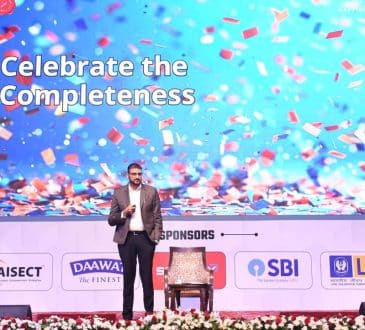Return-to-office – The WebMD case study – get back to office right now…I’m not asking… it’ll be fun!

The recent leaked employee video from Internet Brands has garnered a look of attention. From the cringeworthy production style of the video to the substance of declaring an ultimatum for employees to “return to the office… or else.” It’s rather backfired on the company’s CEO and executive team. So, in the spirit of ‘you learn more from mistakes than success,’ let’s look at what went wrong here.
The desire to have employees return to the office.
We think it’s reasonable to assume the purpose of the video was primarily to declare the company’s changed policy on remote working. Why should this be controversial? Pre-pandemic, it wouldn’t have been a sensitive subject. Generally, working remotely was the exception to the rule. However, post pandemic, work from home has become a highly emotive subject. What started as a defensive measure to protect employee’s health has been reframed by many employees as a basic, taken for granted, fundamental condition of employment.
Choosing to ignore this is the first problem. Internet Brands fell into the trap of not acknowledging the changed context. The root of their mistake is grounded in this misjudgement.
Mandates, dictates, and authoritarian impositions.
Then there is the dynamic of ordering people to do something. There are many problems with anything couched as a directive. Generally, when we order human beings to do things, it creates an escalation of obstinacy and, at best, reluctant compliance. Basically, we dispense with appealing to rationality, facts, logic and just jump to coercion. In the process, whether we like it or not, we suggest we either don’t have any supporting facts or we don’t feel the need to explain ourselves.
It’s tempting to fall back on authoritarianism as a shortcut. Perhaps we justify this by telling ourselves ‘I know this is the right thing for us.’ However, by jumping to imposition without reasoned argument and, critically, discussion, we send the signal about the role we expect employees to play in our organisation. If we expect them to do what we tell them… say jump and expect them to jump… what if that’s all you get? Compliance? Perfunctory execution of orders? Is that really what we want?
Intending one thing but really saying another
When you watch their video, you can’t help but see a glimpse of the broader company culture and behaviours. At one stage an executive crushes a can symbolising ‘the competition.’ At another the head of HR talks about how people will ‘be tracked.’ The CEO says, ‘we aren’t asking… we’re informing.”
It’s hard not to see these things as symbols of the company’s values. You could even make the case that a video purporting to encourage people to comply while also containing crushed cans and implied consequences might point to bigger questions for the company on whether there are subliminal messages leaking through.
Return to the office right now… hahaha…
Of course, the big problem with all the furore over their video was that it wasn’t intended for wide scrutiny. We saw the company subsequently responded with a shrug emoji and ‘yeah…corporate videos are corporate videos’ comment. But why is that an explanation? In today’s corporate world, we do see misjudged attempts to make everything fun, when it isn’t. There is a flippancy to the whole thing. It begs the question how pervasive this attitude might be. Are internal communications about layoffs, missed performance targets, or workplace accidents communicated in a similar tone? We believe attempts at levity when discussing serious business challenges can be very incongruent and run the risk of undermining the management team’s credibility.
We’ve written at length previously about return to the office mandates and why we have sympathy with companies wishing to encourage greater proximity and in person collaboration. We don’t doubt that particularly for knowledge workers in more creative industries encouraging more time in the office makes sense. The trouble is how you go about it makes a huge difference.
What lessons can we take?
- Meeting obstinance with petulance is a mistake – there are many occasions in our professional lives where we feel we are confronted by unhelpful intransigence. It’s a mistake to meet obstinance with petulance.
- Culture and values are easy to undermine: Think carefully about what’s most important to you. If you want a collaborative, engaged, respectful, dynamic, highly productive organisation then this should show up in everything you do.
- Be serious when the subject demands it: We push back on the trend to try to make everything at work fun. There are some subjects that need to remain serious, sober, straightforward. Don’t confuse the importance of key messages.
- The world is transparent: Don’t be naive about particularly leadership actions. It’s always been dangerous to think you can cut corners or not pay attention to particularly people related policies. In a networked, digital world, everything gets seen and interpreted in real time.
- How matters… a lot: You may know exactly what needs to be done to steer your company down the best path. But how you engage others in that, matters. A lot.
Written by Dr. David Oxley.
Have you read?
Revealed: Most Physically Demanding and Difficult Jobs in the United States, 2024.
Revealed: Most In-Demand Education Careers in America, 2024.
Here are the top 25 industries with the highest potential for job creation in 2024.
These are the richest fashion designers in the world, 2024.
Revealed: Countries with the strongest military forces in the world, 2024.
Bring the best of the CEOWORLD magazine's global journalism to audiences in the United States and around the world. - Add CEOWORLD magazine to your Google News feed.
Follow CEOWORLD magazine headlines on: Google News, LinkedIn, Twitter, and Facebook.
Copyright 2025 The CEOWORLD magazine. All rights reserved. This material (and any extract from it) must not be copied, redistributed or placed on any website, without CEOWORLD magazine' prior written consent. For media queries, please contact: info@ceoworld.biz








